A character witness is an individual who provides testimony in court regarding the moral character and reputation of a person on trial. The testimony of a character witness can have a significant impact on the outcome of a legal case, making it crucial for those writing a character witness statement to carefully consider the content of their statement.
In this article, we will explore the role of a character witness, the requirements for being a character witness, and tips for writing an effective character witness statement.
Table of Contents
Character Witness Letter Templates
Character witness letter templates are pre-designed documents that provide a structured format for creating written testimonials or statements of support regarding an individual’s personal character and integrity. These templates offer a convenient and professional way to compose a character witness letter, making it easier to provide a comprehensive and well-organized account of the individual’s positive traits and behavior.
Character witness letter templates typically include sections that guide the writer in addressing important aspects such as the introduction, their relationship to the individual, specific character traits, personal anecdotes, and a concluding statement of recommendation or support. They provide prompts and placeholders to ensure that all necessary details are properly included in the letter.
Using a character witness letter template helps individuals or organizations save time and effort in creating a character reference letter while maintaining a professional and organized structure. The template provides a standardized framework that ensures relevant information is appropriately addressed, enhancing the letter’s credibility and impact.
What Is a Character Witness Letter?

A character witness letter is a written statement that attests to the moral character and reputation of a person on trial. The letter is typically written by someone who knows the person well and can speak to their positive qualities and good standing in the community. This letter is usually written in the context of a legal proceeding and is submitted as evidence to the court.
The purpose of the letter is to provide the judge or jury with additional information about the person on trial, which may help them in reaching a fair and just decision. The letter should be written in a professional and objective manner and should include specific examples of the person’s positive character traits and reputation.
The importance of Character Witness Letter
A character witness letter is important because it provides the court with additional information about the person on trial. The testimony of a character witness can have a significant impact on the outcome of a legal case, as it can provide insight into the person’s moral character and reputation. This information can be used to help the judge or jury make a fair and just decision, by providing a more complete picture of the person’s background and behavior.
Additionally, a character witness letter can help to mitigate the severity of a sentence or penalty if the person is found guilty. By providing evidence of the person’s positive character traits and reputation, a character witness letter can demonstrate that the person is remorseful and unlikely to commit similar crimes in the future.
Furthermore, a character witness letter can also serve as a form of support and validation for the person on trial. It can help them to know that they have people in their life who believe in them and are willing to speak on their behalf.
Overall, a character witness letter is an important piece of evidence in a legal proceeding and can play a critical role in the outcome of the case.
Types of Character Witness Letters
There are several different types of character witness letters that can be written in the context of a legal proceeding. Some of the most common types include:
Personal Character Witness Letter: This type of letter is written by someone who knows the person on trial personally and can speak to their character and reputation. The letter should provide specific examples of the person’s positive qualities and reputation, as well as any relevant information about their background or behavior.
Professional Character Witness Letter: This type of letter is written by someone who has a professional relationship with the person on trial, such as a coworker or employer. The letter should focus on the person’s work ethic, professionalism, and reputation in the workplace.
Expert Character Witness Letter: This type of letter is written by someone who is considered an expert in a specific field and can speak to the person’s character and reputation in that field. For example, a teacher may write a letter as an expert on the person’s academic performance.
Community Character Witness Letter: This type of letter is written by someone who knows the person on trial in the context of their community. The letter should provide information about the person’s reputation and standing in the community, as well as any relevant information about their involvement in community organizations or activities.
Rehabilitation Character Witness Letter: This type of letter is written by someone who has worked with the person on trial in a rehabilitation or counseling setting. The letter should provide information about the person’s progress and willingness to take responsibility for their actions.
How to Write a Character Witness Letter?
Writing a character witness letter can be a daunting task, as it is an important piece of evidence in a legal proceeding and can play a critical role in the outcome of the case. However, by following a few simple guidelines, you can write an effective character witness letter that will provide the court with valuable information about the person on trial.
Identify the purpose of the letter: Before you begin writing, it’s important to understand the purpose of the letter. Are you writing to attest to the person’s moral character and reputation, or are you writing to provide information about their background or behavior? Understanding the purpose of the letter will help you to focus your writing and ensure that the letter is relevant to the case.
Use a professional tone: The letter should be written in a professional and objective manner. Avoid using slang or informal language and be sure to use proper grammar and punctuation. The letter should be typed, not hand-written, and should be formatted in a clear, easy-to-read manner.
Provide specific examples: The letter should include specific examples of the person’s positive character traits and reputation. For example, if you are writing about the person’s honesty, provide an example of a time when they demonstrated honesty in a difficult situation. If you are writing about the person’s reputation, provide specific examples of how they are viewed by others in the community.
Include relevant information: The letter should include relevant information about the person’s background or behavior. For example, if the person has undergone counseling or rehabilitation, include information about their progress and willingness to take responsibility for their actions.
Be honest: It’s important to be honest when writing a character witness letter. If you do not know the person well or have concerns about their character, it’s best to not write a letter. Perjuring yourself or providing false information in a legal proceeding could lead to serious consequences.
Keep it short: A character witness letter should be concise and to the point. It should be no longer than one page.
Proofread and edit: Before submitting the letter, be sure to proofread and edit it for spelling and grammatical errors. Make sure that the letter is clear and easy to understand.
Sign and date the letter: Be sure to sign and date the letter, and include your contact information. This will make it easier for the court to contact you if they have any questions about the letter.
Be prepared to testify: If the person on trial is acquitted, it’s possible that the judge may ask you to testify in court. Be prepared to do so, if requested.
Sample Character Witness Letter
Dear [Judge/Jury],
I am writing this letter to attest to the character and reputation of [Person on Trial]. I have known [Person on Trial] for [Number of years] and have had the pleasure of working with them in [professional/personal/community] capacity. I believe that [Person on Trial] is a person of good character and reputation, and I would like to provide some examples to support this belief.
One example of [Person on Trial]’s honesty is when [specific situation]. Despite the temptation to [do something dishonest], [Person on Trial] chose to [do the honest thing]. This demonstrated to me that [Person on Trial] has a strong moral compass and a deep commitment to honesty.
In addition to [Person on Trial]’s honesty, I have also been consistently impressed by [Person on Trial]’s [specific positive trait or reputation]. I have never heard anyone speak ill of [Person on Trial] and [Person on trial] is well-respected in our community. [Person on Trial] is also known for [specific examples of community involvement or reputation].
Furthermore, [Person on Trial] has shown a willingness to take responsibility for their actions and make amends for any mistakes. [If applicable, provide specific examples of rehabilitation or counseling].
I understand that [Person on Trial] is currently on trial for [specific charge]. I believe that [Person on Trial] is not guilty of the charges, and I hope that this letter will provide valuable information to the court about [Person on Trial]’s character and reputation.
Thank you for considering my testimony. Please do not hesitate to contact me if you have any further questions or need additional information.
Sincerely,
[Your name]
[Your contact information]
Key-points
- Understand the purpose of the letter
- Use a professional and objective tone
- Provide specific examples of the person’s positive character traits and reputation
- Include relevant information about the person’s background or behavior
- Be honest and do not exaggerate
- Keep it short, one page is enough
- Proofread and edit the letter
- Sign and date the letter and include your contact information
- Be prepared to testify if requested by the court.
FAQs
Who can write a character witness letter?
Anyone who knows the person on trial well and can speak to their moral character and reputation can write a character witness letter. This can include friends, family members, coworkers, employers, community members, and experts in a specific field.
What should be included in a character witness letter?
A character witness letter should include specific examples of the person’s positive character traits and reputation, as well as any relevant information about their background or behavior. The letter should be written in a professional and objective manner and should not be longer than one page.
How do I format a character witness letter?
A character witness letter should be typed and formatted in a clear and easy-to-read manner. It should include a formal heading and be addressed to the judge or jury. The letter should be signed and dated, and include the contact information of the person writing the letter.
Will I have to testify in court if I write a character witness letter?
It’s possible that the judge may ask you to testify in court if the person on trial is acquitted. Be prepared to do so if requested.
Is it important to be honest when writing a character witness letter?
Yes, it is important to be honest when writing a character witness letter. Providing false information in a legal proceeding could lead to serious consequences.
Can a character witness letter help to reduce a sentence or penalty?
Yes, a character witness letter can help to mitigate the severity of a sentence or penalty if the person is found guilty. By providing evidence of the person’s positive character traits and reputation, a character witness letter can demonstrate that the person is remorseful and unlikely to commit similar crimes in the future.

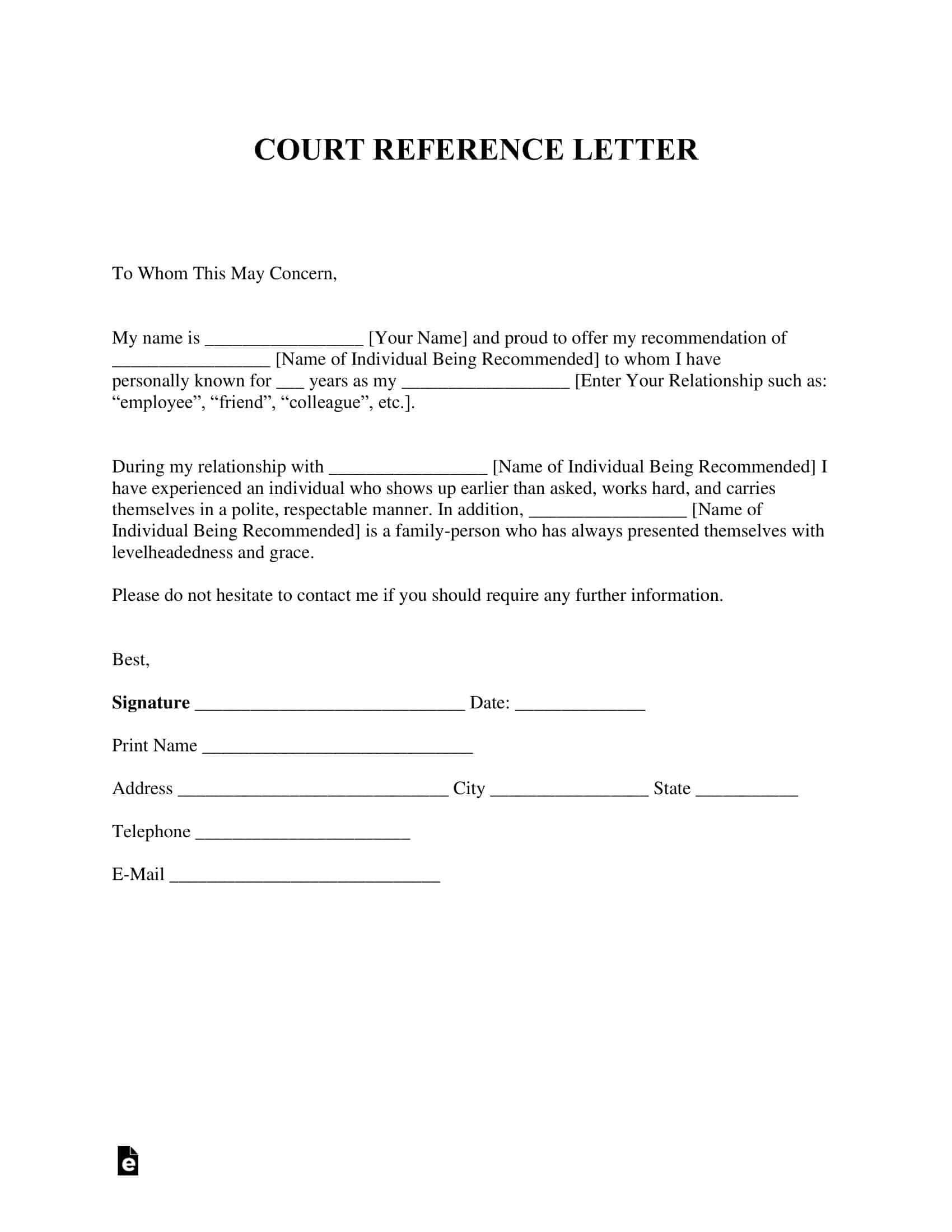









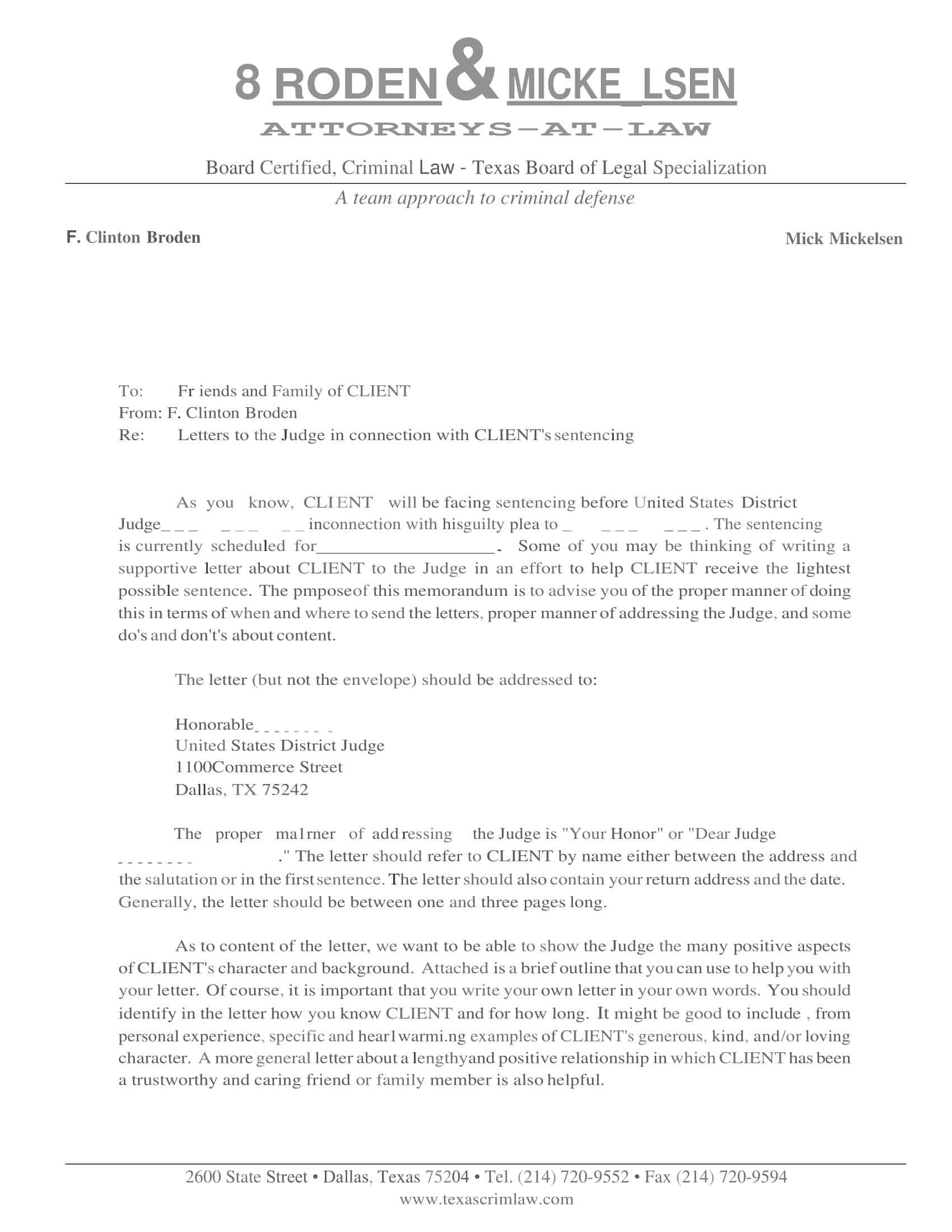







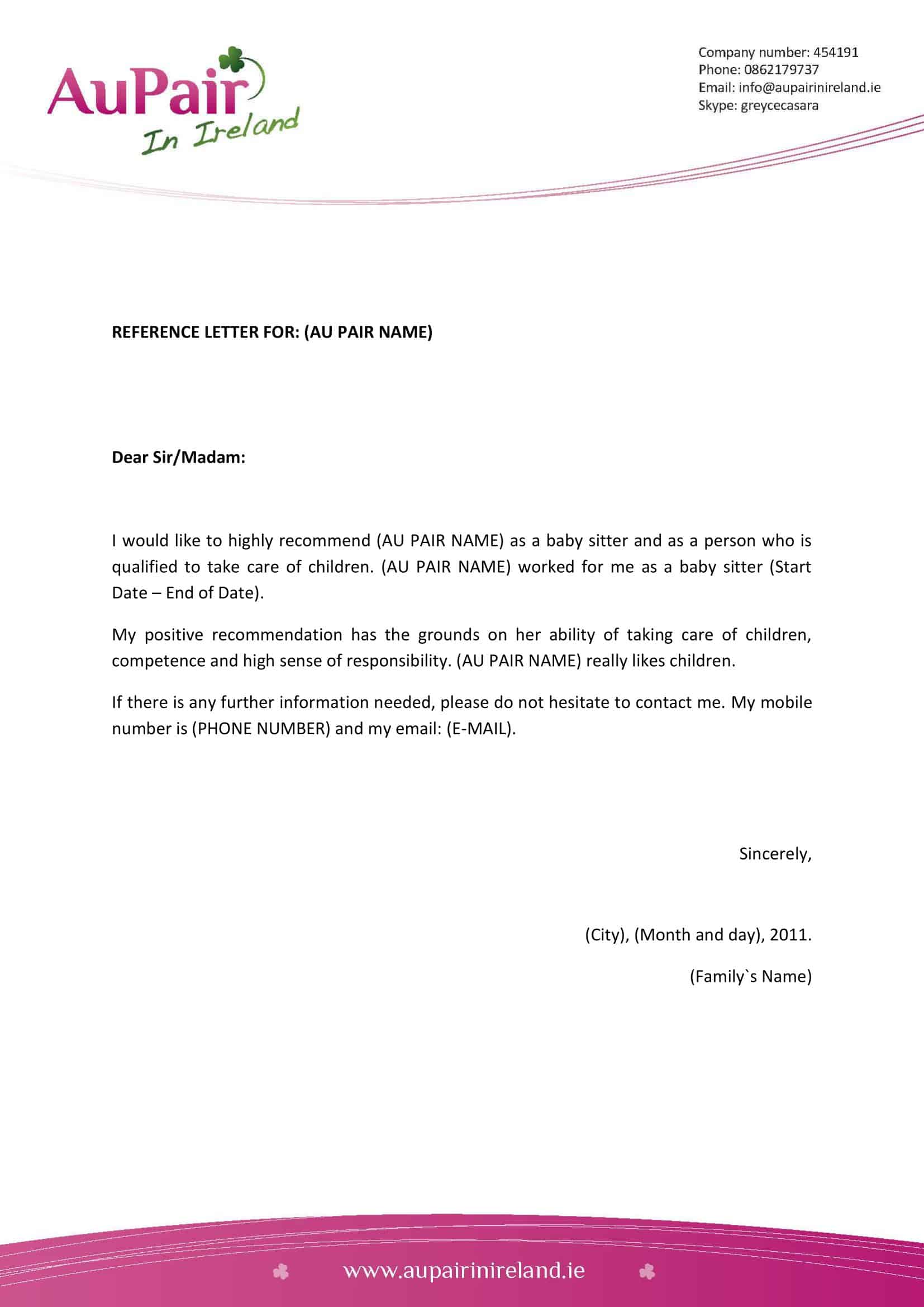
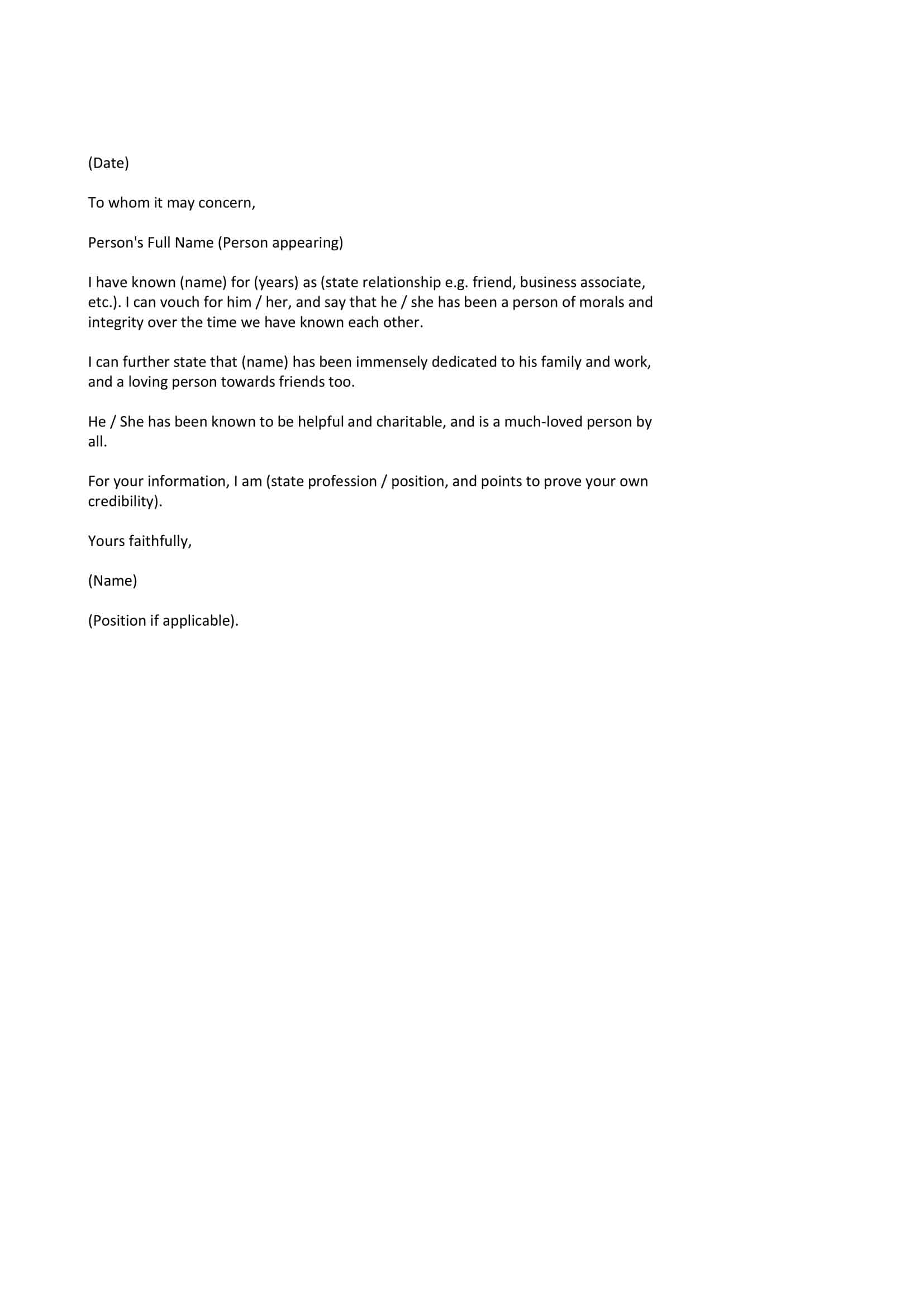

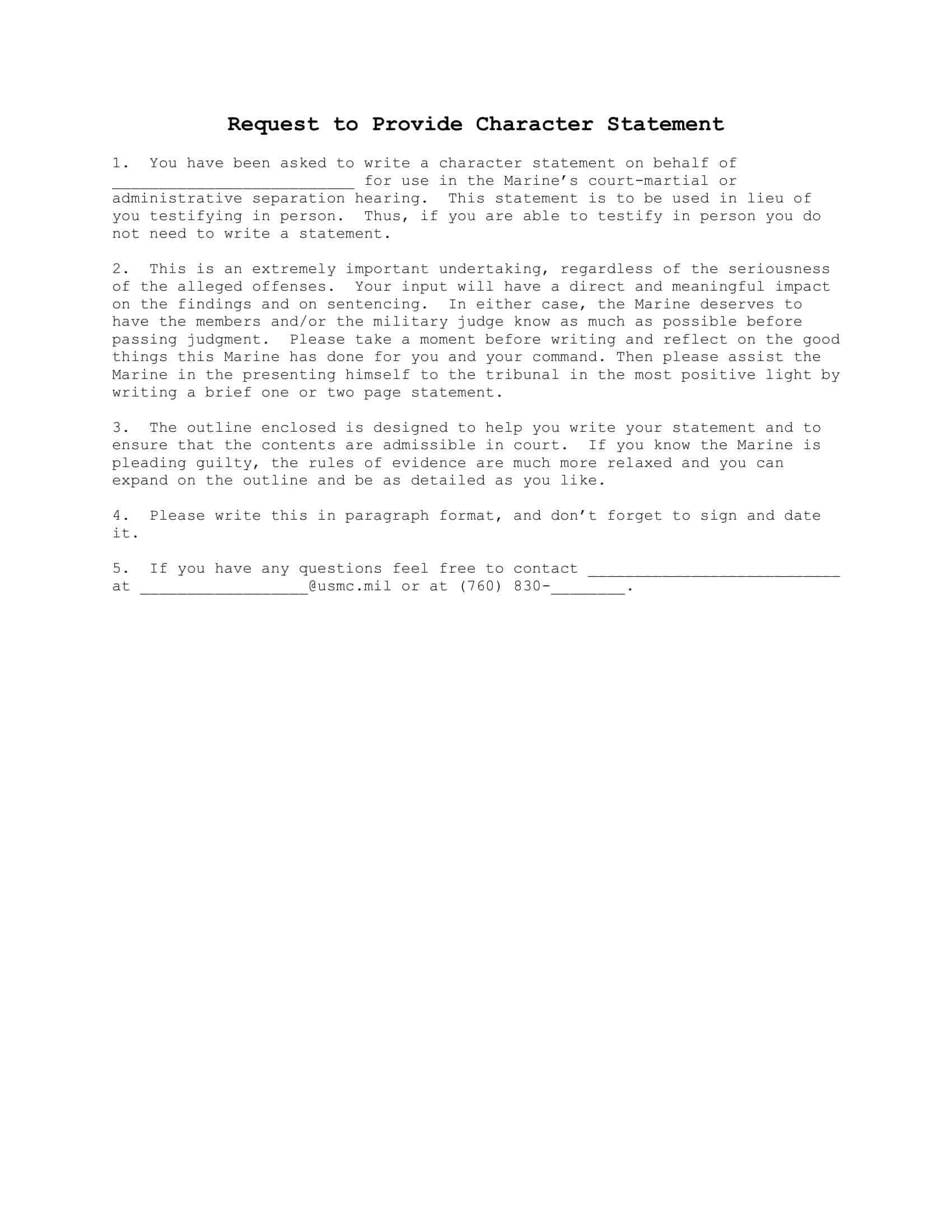
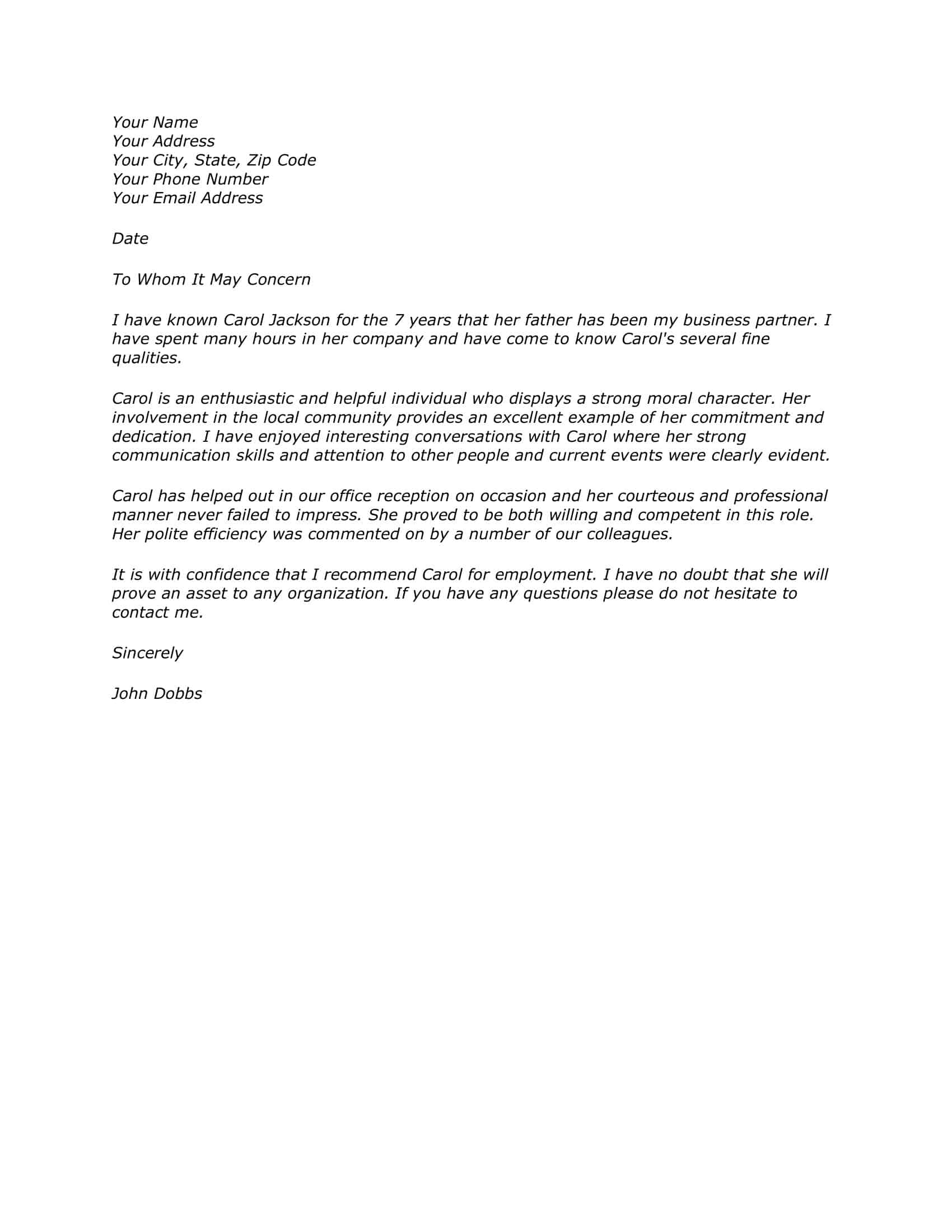









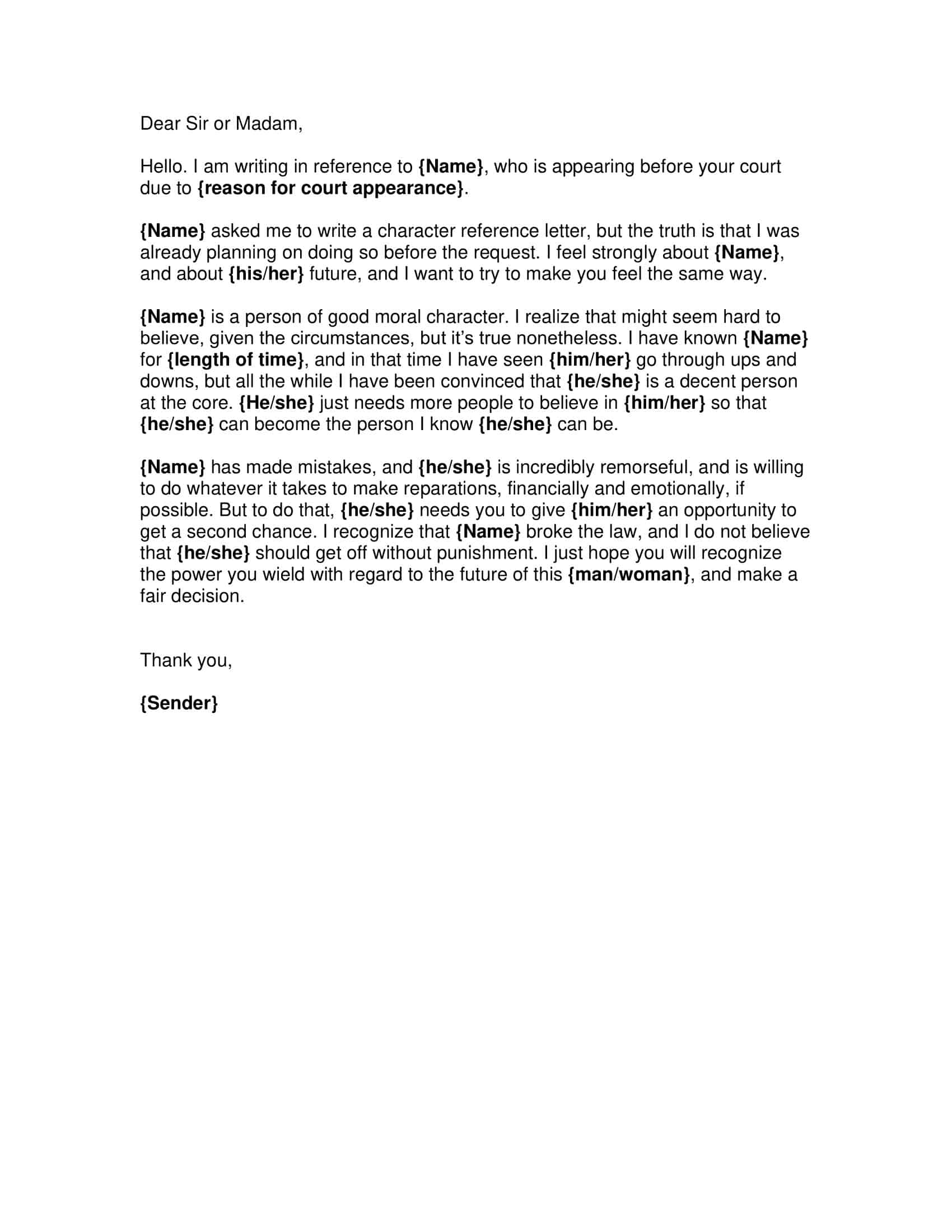
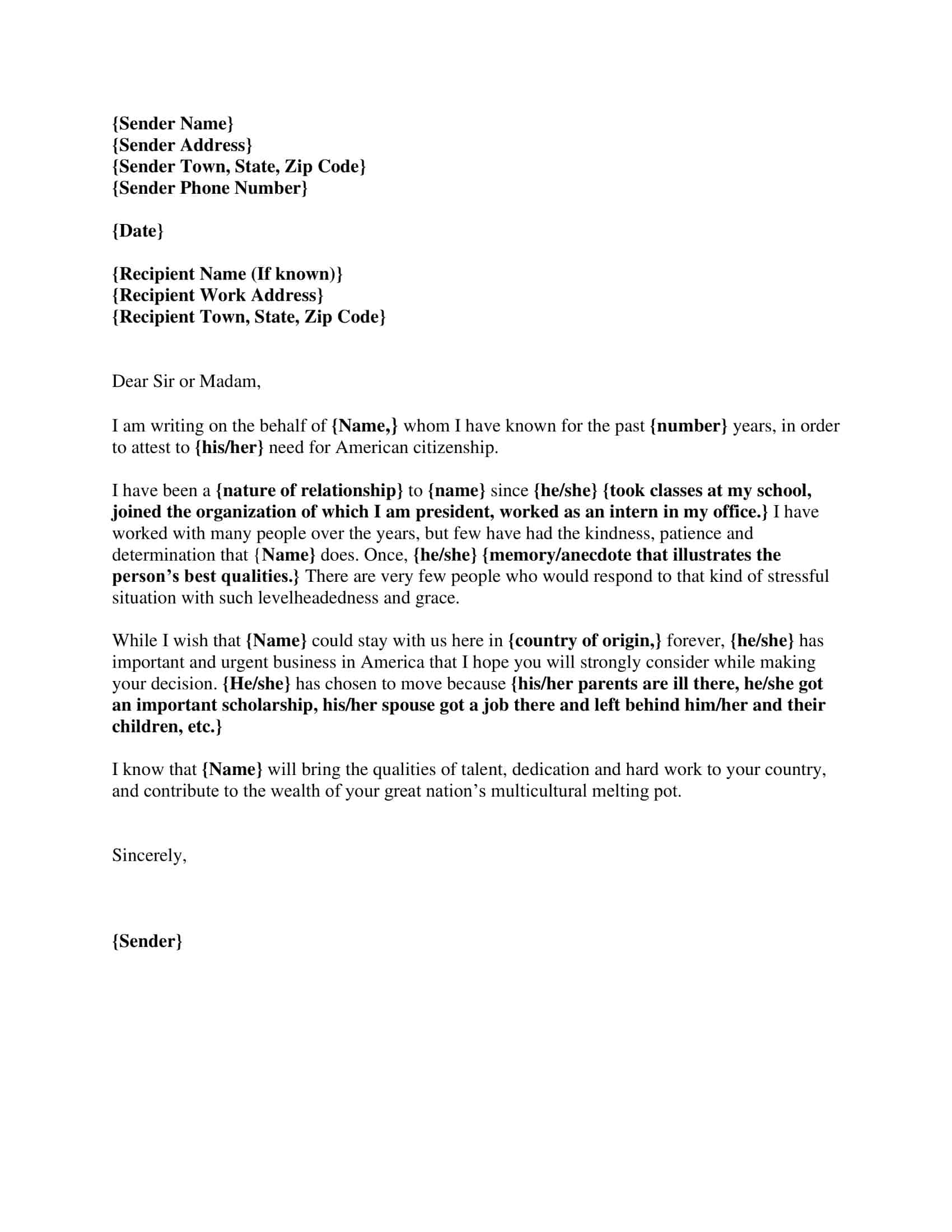




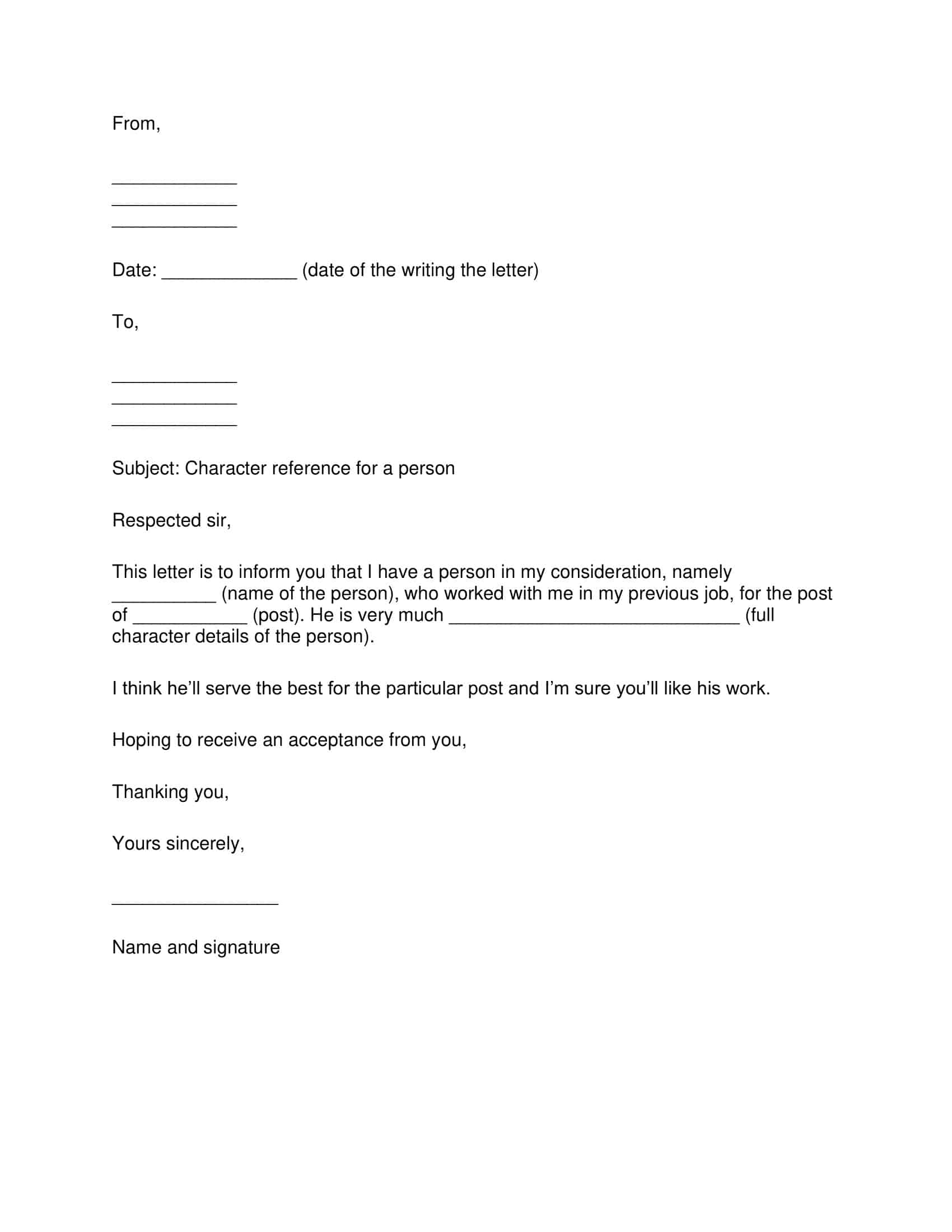
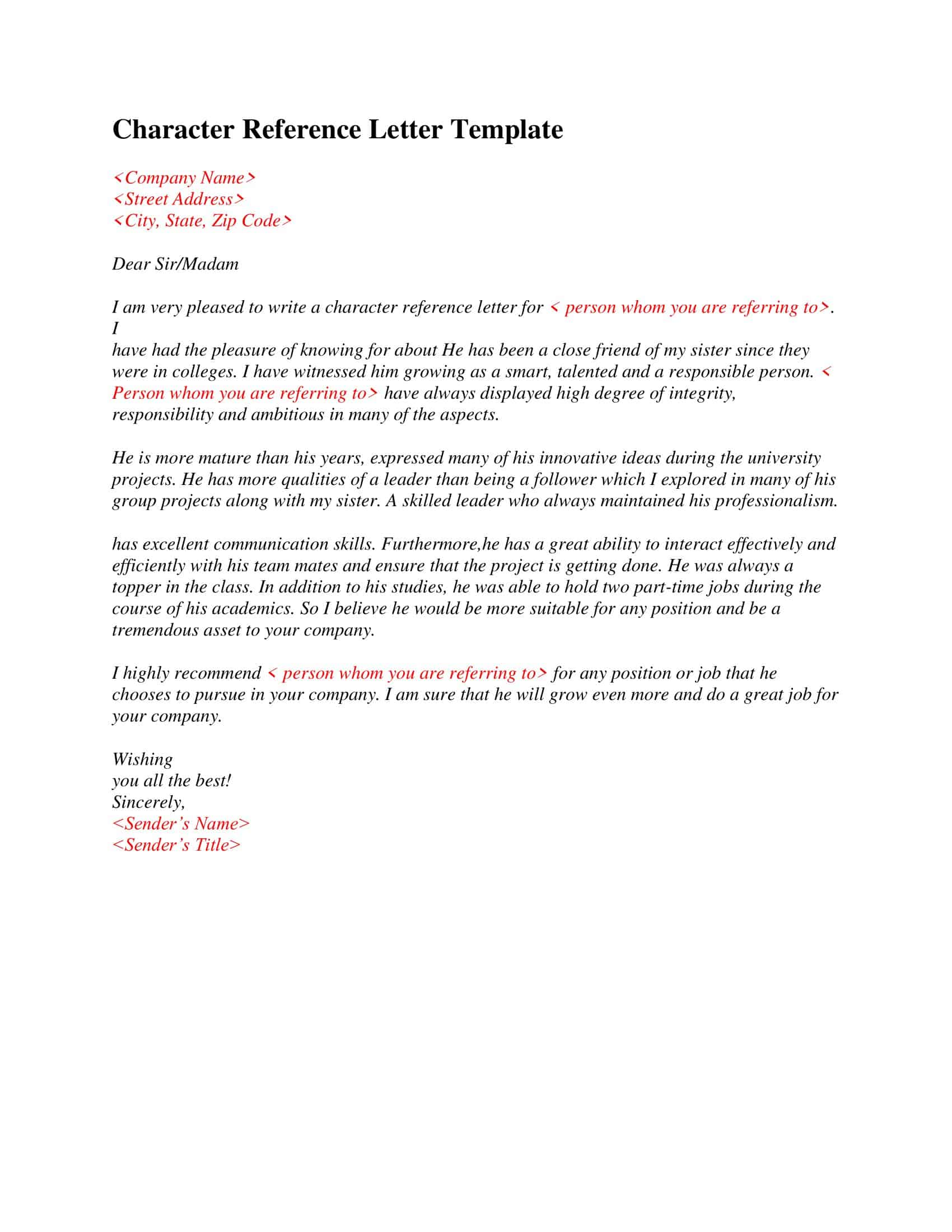


![Free Printable Friendly Letter Templates [PDF, Word, Excel] 1st, 2nd, 4th Grade 1 Friendly Letter](https://www.typecalendar.com/wp-content/uploads/2023/05/Friendly-Letter-150x150.jpg 150w, https://www.typecalendar.com/wp-content/uploads/2023/05/Friendly-Letter-1200x1200.jpg 1200w)
![Free Printable Congratulation Letter Templates [PDF, Word] Examples 2 Congratulation Letter](https://www.typecalendar.com/wp-content/uploads/2023/05/Congratulation-Letter-150x150.jpg 150w, https://www.typecalendar.com/wp-content/uploads/2023/05/Congratulation-Letter-1200x1200.jpg 1200w)
![43+ Printable Leave of Absence Letter (LOA) Templates [PDF, Word] / Free 3 Leave of Absence Letter](https://www.typecalendar.com/wp-content/uploads/2023/01/Leave-of-Absence-Letter-150x150.jpg 150w, https://www.typecalendar.com/wp-content/uploads/2023/01/Leave-of-Absence-Letter-1200x1200.jpg 1200w)
